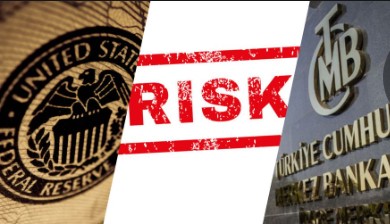Governments across the world are battling the worst inflation wave since 1970s OPEC shocks. Led by US Central Bank Fed and European Central Bank, the preferred method of combatting inflation is to raise interest rates. This process is expected to last through 2023.
While Turkey and US are thousands of miles apart and have only a modest trade relationship, Fed rate hikes have a drastic effect on the Turkish economy. This observation applies to most Emerging Markets, which, too, shall suffer from higher US rates, bond yields and a stronger dollar.
But, why? How does Fed monetary policy echo across the word all the way to Turkey? Can Turkish economy, banks and currency survive the 2022-2023 monetary tightening episode without damage? Real Turkey Channel presenter Atilla Yesilada explains from Istanbul…
